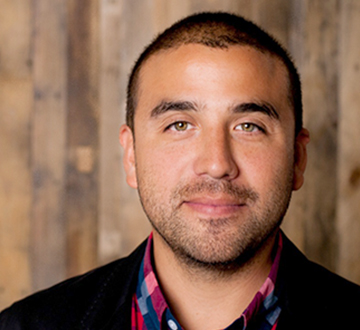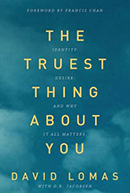
Dave Lomas, pastor of Reality San Francisco, wants to help people find their true identity. – Photo courtesy of Dave Lomas
Dave Lomas is pastor of Reality San Francisco, a congregation located near the Castro District, a neighborhood often referred to as America’s “gay mecca.” When he speaks about identity and desire, people listen.
That’s exactly what Lomas has done in his most recent book, “The Truest Thing about You: Identity, Desire, and Why it All Matters.” In it, he argues that many labels comprise a person’s identity–parent, introvert, victim, student, single. While these are all true monikers that describe someone, he encourages people to ask a deeper and somewhat provocative question: “What does God think is the truest thing about you?” Here, Dave and I discuss identity, self-worth, and how his ideas relate to the people in his community with various sexual orientations.
RNS: Your book is built around this idea about the truest thing about you. What is that, and why does it matter?
DL: What I try to show in the book is that the truest thing about you is as simple as it is profound. We are all humans created in the image of God. If that’s the case, we don’t make our identity; we receive it. But what does that look like? And what happens when our identity gets terribly messed up? The promise of Jesus is a restoration of our true and given identity, but too often we operate out of what we think is truest about us, like pain, loss, failure, body image. Those things may be true, but they are not truest. That’s what I hope this book helps people see.
RNS: But is there really harm in allowing our identities to be formed around other possibilities, such as “student” or “entrepreneur” or “extrovert”?
DL: The problem is that we’re mistaking parts for the whole, and we’re getting a distorted picture of who we are. We may know intellectually that we are more than what we do, for example, or who we’re attracted to, and none of us want to be defined so narrowly. The problem is that many of us function as if being an “extrovert” was the truest thing about us. When the extrovert can’t find friends, she questions her entire identity. When the entrepreneur can’t create, he loses his sense of self. We are more than these things, and we know it, but we’ve got to start believing it.
RNS: You mentioned “who we are attracted to.” You pastor in San Francisco near the Castro district. So many people today–not just in your community–defined their identity by their sexual orientation. How do your ideas inform conversations about sexual identity?
DL: We actually started the church right in the heart of the Castro. We love the people here. I try to say from the pulpit that the truest thing about you is not who you are attracted to. The church is partially to blame in making someone’s sexual orientation the truest thing about them. When someone we know comes out as gay, one of the first thoughts we have is, “Well, how are you going to be a Christian and still go to our church?” And with that question we’ve just made their orientation more true than their identity in Christ. The Gospel teaches that you are more than who you are attracted to, just like you are more than your job or your past or your successes and failures. Your identity in Christ is always the truest thing about you. So following Jesus means to take everything in our lives and submit it to Christ.
RNS: There’s a lot of talk about identity in the church these days. When we bring that identity-obsession into faith, doesn’t faith—which is essentially God-focused—become me-centered?
DL: Now that’s a good question! I honestly had the biggest struggle writing a book about “me.” I agree with you on one hand, but I think the “me” we are supposed to forget is the false self. The true self needs to realized. That’s what I think a lot of the New Testament is getting at. Like when Paul says that I no longer live but Christ lives in me. He still says “me.” Christ lives in “me”—and that’s the real me. That’s why he goes on to say, “The life I now live…” See, there is still a life that “I” have to live. But it’s not the self-consumed me. Rather, it’s the “me” that God created in the garden and was recreated on the cross. The real and truest “me.”
RNS: These “identity” conversations often revolve around our inherent worthiness. But I know my identity is much more complicated and even messy than that. Do you deal with the rougher parts of who we are?
DL: When you say “our inherent worthiness” I hear you saying we try to find our worth in the things we do or who we think we are. But when we define ourselves by what we do, or what we have, or what we desire, it can lead to identity crisis—especially because we aren’t always “worthy” in those areas. We are, I think, a collection of someones. [tweetable]The Christian life means making who we are in Christ the most fundamental layer of our identity.[/tweetable] So the rougher parts of who we are can often still be true about us, yet there is a voice louder, more filled with love and truth. The truest voice says we are ultimately “beloved” by God.






